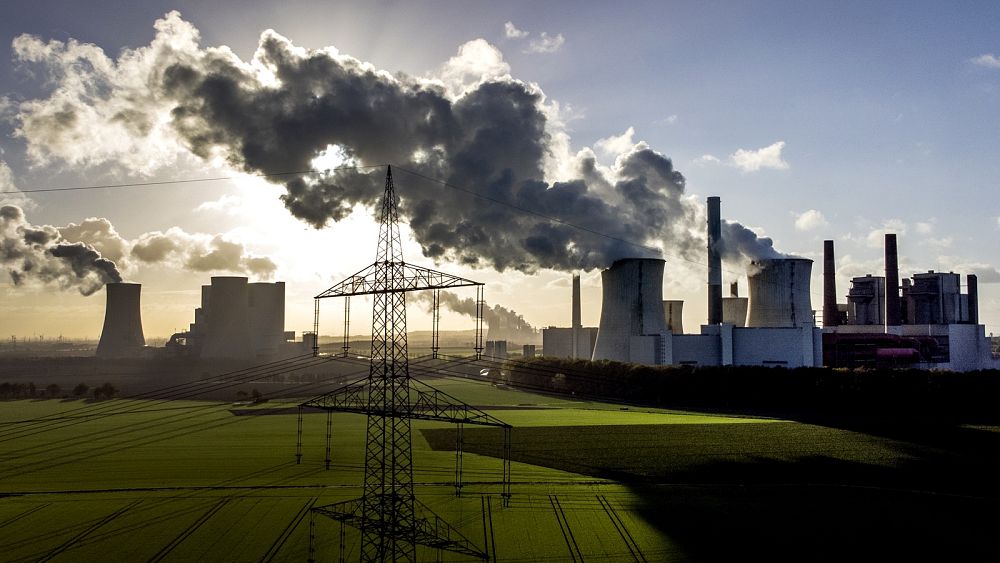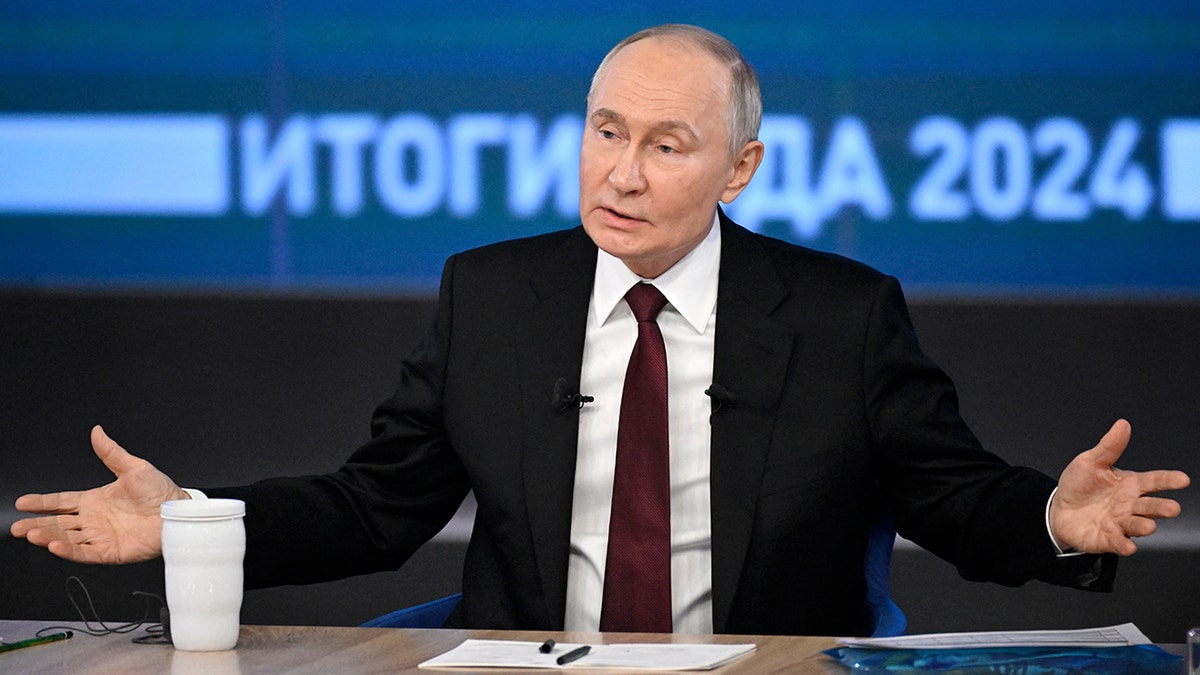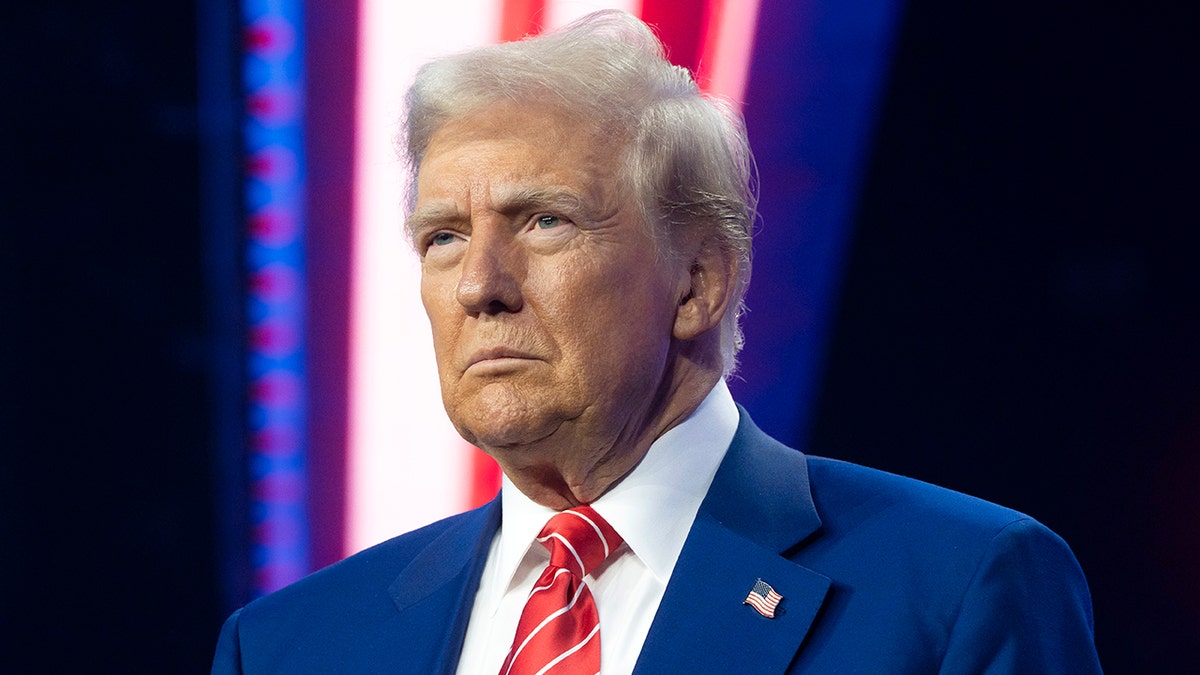World
Brussels tables EU-wide exit from controversial Energy Charter Treaty

The European Commission has formally proposed a “coordinated and orderly” withdrawal from the Energy Charter Treaty.
The proposed legislation, unveiled on Friday afternoon after days of speculation, would see the European Union and its member states leave the controversial treaty at the same time, avoiding the chaos of having individual countries going their own way.
Germany, France, Spain, the Netherlands and Poland were among those who had previously announced their intention to pull out in a unilateral fashion, following in the steps of Italy, which left the convention back in 2016.
“The outdated Energy Charter Treaty is not aligned with our EU Climate Law and our commitments under the Paris Agreement,” said Frans Timmermans, the European Commission’s executive vice-president in charge of the Green Deal.
“It’s time for Europe to withdraw from this Treaty, and to put all of our focus on building an efficient and competitive energy system that promotes and protects renewable energy investments.”
Signed in 1994, the Energy Charter Treaty (ECT) was originally intended to protect Western investors who were seeking to do business in former Soviet states but feared being the target of discriminatory access, expropriation, nationalisation and other unexpected circumstances.
As a legal shield, the ECT set up a behind-the-scenes system of arbitration that private companies could use to sue governments and claim compensation over policy changes that might threaten their investment projects and profit expectations.
Over time, this arbitration system became increasingly at odds with the fight against the climate crisis, which required countries to introduce far-reaching plans to curb CO2 emissions and phase out fossil fuels.
Corporations that operate oil fields, gas pipelines and coal-fired power plants saw in the ECT a way to challenge these green policies and began filing lawsuits against governments to ask for damages.
The fines issued by the panel are legally binding and can easily reach nine digits, as the Netherlands, Italy and Spain have all experienced in recent years.
The succession of million-worth legal cases between investors and states gradually fuelled calls for an EU-wide withdrawal, an option that the European Commission initially opposed, arguing the bloc should instead work to modernise the convention and address its most detrimental aspects.
But the effort to update the ECT collapsed last November after a small group of member states refused to approve the Commission’s proposal. The failure prompted the executive to U-turn and recommend a collective exit, which was made official on Friday upon publication of the legislative texts.
The departure, which will also affect the European Atomic Energy Community, Euratom, needs to obtain the consent of the European Parliament and then be ratified by member states with a qualified majority vote, widely expected to be secured.
Following the joint exit, the ECT’s membership will be slashed by half, from 56 to 28 signatories. Major energy exporters like the United States, Russia and Saudi Arabia have never been party to the text.
“This is a unique opportunity for the EU to speak with one voice and to remove a major obstacle to realising its climate targets,” Lukas Schaugg, a law analyst at the International Institute for Sustainable Development (IISD), said in a statement.
Amandine Van Den Berghe, a lawyer at ClientEarth, said the coordinated exit would liberate member states from the “chilling effect” caused by the ECT’s arbitration system and the “fear of reprisals from the fossil fuel industry.”
“The European Commission has seen sense,” Van Den Berghe said.
The saga, however, is far from over: ECT signatories remain bound by a 20-year sunset clause, meaning they could still be hit by a lawsuit long after cutting ties with the treaty.
As part of the coordinated exit, the Commission intends to propose a separate piece of legislation to prevent EU-based companies from filing claims against member states. The legality of these intra-EU actions, which represent over 75% of all ECT litigation, has been directly challenged by the European Court of Justice.
According to a 2021 study by Investigate Europe, the value of fossil fuel infrastructure protected by the treaty is estimated to be worth €344.6 billion across the EU, the UK and Switzerland.

World
2024: Top 10 defining moments in the European Parliament

From crucial votes on nature and migration, to powerful speeches and hard debates: the year saw drama and upheaval in the Eurochamber
2024 was a year of change for the European Parliament, shaken up by the elections in July.
Beyond the vote, which significantly modified its composition and balance of powers, here are some moments to remember from this year.
1. Farmers’ protests reach Parliament
The beginning of 2025 was marked by massive protests of farmers across Europe, from Germany and France to Poland and Spain.
Among their targets were the EU’s commercial deal with Mercosur countries – at that time negotiations were still ongoing – and some European environmental policies affecting the agrifood sector.
On 1 February, a thousand farmers from several countries arrived in Brussels. After a night procession on their tractors, they occupied the square in front of the European Parliament for an entire day, burning hay, spreading manure and damaging the square.
2. ‘Stop being boring to defeat Putin’
One of the most powerful and evocative interventions in the European Parliament was Yulia Navalnaya’s in February. She took the floor in the hemicycle in Strasbourg days after her husband, Alexei Navalny, died under suspicious circumstances while imprisoned in Russia.
Navalnaya paid tribute to the opposition leader’s courage and attacked Russia’s president Vladimir Putin, receiving a general standing ovation from MEPs.
“If you really want to defeat Putin, you have to become an innovator. You have to stop being boring,” Navalnaya told MEPs.
“You cannot defeat him by thinking he is a man of principle who has morals and rules. He is not like that. And Alexei realised that a long time ago. You are not dealing with a politician but with a bloody monster.”
3. The final battle on Nature Restoration Law
The Nature Restoration Law, a proposal to gradually rehabilitate the EU’s land and sea areas degraded by climate change and human activity was one of the most contentious issues in the European Parliament in the final part of the legislature.
European People’s Party (EPP) began a full-throttle campaign to bring down the law, arguing it would imperil food production, increase retail prices and devastate the traditional livelihoods of farmers.
EPP talking points were backed by right-wing forces, but fully contested by progressive MEPs, environmental organisations, legal scholars and even multinationals, who said restoring nature was indispensable to maintain a prosperous economy and sustainable supply chains.
The EPP even pressed on with a controversial social media push, going as far as claiming the legislation would turn the city of Rovaniemi, where Santa Claus lives, into a forest.
In February, the Parliament eventually approved a watered-down version of the law with 329 votes in favour and 275 against. It entails the restoration of at least 20% of the EU’s land and sea areas by 2030, and of all ecosystems in need by 2050.
4. The long-sought vote on the major migration policy reform
In April 2024, the European Parliament approved the wide-reaching reform of the European Union’s migration and asylum policy almost four years after the European Commission had proposed it.
The “Pact on migration and asylum” was supported by the three major Parliament groups: European People’s Party (EPP), Socialists and Democrats (S&D), and Renew Europe, albeit with some dissidents.
The right-wing parties, the Greens/EFA and the Left group voted against. The latter even protested outside Parliament before the vote, staging a “funeral for the right to asylum” that it claimed the new rules would usher in.
New rules foresee a solidarity mechanism to share the burdens of welcoming asylum seekers, through a redistribution among the member states which can be replaced with financial contributions. But they also entail stricter border controls and faster procedures for examining asylum requests and carrying out the repatriation of migrants. The Pact will be fully in force from mid-2026.
5. The Parliament backs abortion as an EU fundamental right
Even symbolic votes could cause hard clashes in the European Parliament. In April, the Chamber approved a resolution to include the right to abortion in the Charter of Fundamental Rights of the European Union.
As the topic is very divisive, the Parliament split. The resolution was approved with 336 votes in favour, 163 against, and 39 abstentions. The right-wing groups Identity and Democracy and European Conservatives and Reformists voted against, as did the majority of the centre-right conservative European People’s Party, the largest group of the Parliament.
However, the vote did not have a binding effect. The Charter of Fundamental Rights of the EU requires the unanimous agreement of all member states to be changed. The rules for terminating pregnancy also fall within health legislation, which is the exclusive competence of EU countries.
6. The final rush before the European elections
Members of the European Parliament often run to the last available moment to approve important pieces of legislation. In its last session before the elections, the EP held 89 votes on legislative files, plus seven non-legislative resolutions, marking a record for the entire legislature.
Among them, there were the right-to-repair directive, a regulation to prohibit products made with forced labour on the Union market, new rules for digital platform workers, a bill on packaging reduction, and the first-ever European law against gender-based violence.
7. The ‘Venezuela majority’ in Europe
After the vote, the new European Parliament soon revealed its changed balance of powers, even if in a mostly symbolic vote. In September, the Strasbourg hemicycle voted to recognise Venezuela’s exiled presidential candidate Edmundo González Urrutia as the “legitimate and democratically elected president”.
The resolution, which carried no legal weight, was backed by the centre-right European People’s Party (EPP), the right-wing nationalist European Conservatives and Reformists (ECR) and the newly formed far-right Patriots for Europe, marking the first time in the new legislature that mainstream conservatives joined ranks with the more right-wing groups.
This alliance was renamed the “Venezuela majority”, following the subject of the vote, and resurfaced during the decision to award González and Venezuela’s opposition leader María Corina Machado the Parliament’s Sakharov Prize for Freedom of Thought.
8. Von der Leyen vs Orbán: showdown in the Parliament
The first October plenary session saw a fiery debate pitching European Commission President Ursula von der Leyen against Hungary’s prime minister Viktor Orbán, who took the stage in the European Parliament a few months after a controversial visit to Moscow made while Hungary occupied the rotating presidency of the Council of the EU.
The war in Ukraine was one of the bones of contention, with the Hungarian leader claiming that the EU had adopted a mistaken policy on the war and the Commission president launching a personal attack on him without mentioning his name: “There are still some who blame this war not on the invader but on the invaded.”
9. The unpopular approval of the European Commission
At the end of November, the European Parliament definitively approved the College of Commissioners led by Ursula von der Leyen. But while the vote on the Commission’s President herself in July was a success for von der Leyen, she could barely celebrate the approval of the College.
In November, only 370 MEPs voted in favour, representing 54% of all votes cast and 51% of the total number of members, 719.
Several defections came from among the centre-right European People’s Party, the centre-left Socialists and Democrats and the liberal Renew Europe, lowering support for the Commission, which was “saved” by the votes of part of the European Conservatives and Reformists and the Greens/EFA group.
Indeed, for one reason or another, only one in two lawmakers has endorsed the new College of Commissioners.
10. Weirdness and oddities in the Eurochamber
2024 also witnessed some surreal moments during the debates in the Parliament: a dog barking in the hemicycle, an Irish MEP insulting an Italian football club, and a Slovak MEP releasing a dove as a gesture of peace.
World
Beyoncé NFL Halftime Show Will Be Available to Rewatch on Netflix as a Stand-Alone Special

UPDATE, 12/25, 4:30 p.m. PT: Netflix said it will provide on-demand access to the full halftime performance of “Beyoncé Bowl” as a stand-alone special “later this week.” The 20-minute spectacle — her first live TV performance in four years — featured Post Malone, Shaboozey and her daughter Blue Ivy Carter to debut tracks from “Cowboy Carter” for the first time in a live setting.
EARLIER:
Beyoncé will light up the Houston night on Christmas with a halftime performance during the Ravens-Texans game on Netflix. To watch it, you’ll have to tune in live on Dec. 25 — otherwise, you’ll have only a few hours to catch the replay on Netflix.
Queen Bey’s Xmas performance will feature her first live performances of songs from “Cowboy Carter.” She’ll take the stage in her hometown during halftime of the Baltimore Ravens-Houston Texans matchup at NRG Stadium in Houston.
Netflix, as part of its accelerating push into live sports, snagged global rights to the NFL’s two Christmas Day 2024 games: the Kansas City Chiefs at the Pittsburgh Steelers (starting at 1 p.m. ET), followed by the Ravens-Texans game (4:30 p.m. ET).
Under Netflix’s agreement with the NFL, in the U.S., the two Christmas games expire three hours after the livestream ends (meaning Beyoncé’s performance and the Ravens-Texans game will no longer be available to rewatch on Netflix as of around 11 p.m. ET). Outside the U.S., the games expire on Netflix 24 hours after the livestream ends. The NFL livestreams will include ad breaks, even for Netflix subscribers on no-ads plans.
Few details are available for Beyoncé’s Christmas halftime show, but according to Netflix she is expected to bring along some “special guests” who are featured on “Cowboy Carter.” She’s a veteran of two Super Bowls: Beyoncé was the halftime performer for the 2013 game in New Orleans, which featured a Destiny’s Child reunion; and in 2016, she sang “Formation” when Coldplay was the headliner act.
On Christmas Day, Netflix’s pregame coverage will kick off at 11 a.m. ET, from NFL Network’s studios in L.A. and Acrisure Stadium in Pittsburgh. The streamer has tapped Mariah Carey to deliver a recorded performance of her record-breaking holiday hit “All I Want for Christmas Is You” before both of the day’s two games.
If you missed the window for Netflix’s NFL livestreams, you still have the chance to catch the reruns. As it stands right now, NFL Network is scheduled to re-air Ravens-Texans on Wednesday, Dec. 25, at 11:30 p.m. ET and Thursday, Dec. 26, at 5 a.m. ET. The channel will re-air Chiefs-Steelers on Dec. 25 at 8:30 p.m. ET and Dec. 26 at 2 a.m. ET. There is the possibility for additional re-airs but portions of the NFL Network’s programming schedule are still being determined. In addition, replays of both games will be available with NFL+ Premium ($14.99/month) in the U.S. and via DAZN internationally.
Note also that the two Netflix Christmas Day games will air on broadcast TV in the competing teams’ local markets and will be available live on U.S. mobile devices with an NFL+ subscription.
World
Zelenskyy lambastes Putin over Christmas strikes: 'What could be more inhumane?'

Ukrainian President Volodymyr Zelenskyy excoriated Russian President Vladimir Putin on Wednesday for launching attacks against energy infrastructure on Christmas Day.
Zelenskyy suggested the attacks were “inhumane,” but said they would not ruin Christmas.
“Today, Putin deliberately chose Christmas for an attack. What could be more inhumane? Over 70 missiles, including ballistic ones, and more than a hundred attack drones. The targets are our energy infrastructure. They continue to fight for a blackout in Ukraine,” he declared in a post on X.
The Russian Defence Ministry acknowledged a “massive strike” on its part, saying it hit energy facilities that supported Ukraine’s “military-industrial complex,” Reuters reported.
“The aim of the strike was achieved. All facilities have been hit,” the ministry said.
RUSSIA BATTERS UKRAINE POWER GRID AMID RISING CONCERN PUTIN COULD ORDER BALLISTIC MISSILE ATTACK THIS WEEKEND
Ukrainian President Volodymyr Zelenskyy talks with the media during the European Council Meeting in Brussels on Thursday. (Pier Marco Tacca/Getty Images)
Strikes against Ukrainian fuel and energy sources involved 78 air, ground and sea-launched missiles, in addition to 106 Shaheds and other kinds of drones, Ukraine’s air force claimed, according to The Associated Press.
“Unfortunately, there have been hits. As of now, there are power outages in several regions. Power engineers are working to restore power supply as soon as possible,” Zelenskyy noted.
Still, the Ukrainian leader declared that “Russian evil will not break Ukraine and will not spoil Christmas.”
US CITIZEN IMPRISONED IN RUSSIA GIVEN NEW 15-YEAR SENTENCE IN WAKE OF ESPIONAGE CONVICTION

Russian President Vladimir Putin holds his annual end-of-year press conference in Moscow on Thursday. (Alexander Nemenov/AFP via Getty Images)
The U.S. has provided billions of dollars’ worth of aid to help Ukraine fight the Russian onslaught that erupted in 2022, but Americans and their congressional representatives have been divided regarding whether the U.S. should continue supplying aid to Ukraine.
President-elect Trump, who will take office on Jan. 20, has called for a cease-fire and negotiations.
TRUMP MEETS WITH MACRON, ZELENSKYY AHEAD OF NOTRE DAME REOPENING CEREMONY IN PARIS

President-elect Trump looks on during Turning Point USA’s AmericaFest at the Phoenix Convention Center in Phoenix on Sunday. (Rebecca Noble/Getty Images)
CLICK TO GET THE FOX NEWS APP
In a post on Truth Social this month, Trump declared that “Zelenskyy and Ukraine would like to make a deal and stop the madness. They have ridiculously lost 400,000 soldiers, and many more civilians. There should be an immediate ceasefire and negotiations should begin.”
The Associated Press and Reuters contributed to this report.
-
/cdn.vox-cdn.com/uploads/chorus_asset/file/24924653/236780_Google_AntiTrust_Trial_Custom_Art_CVirginia__0003_1.png)
/cdn.vox-cdn.com/uploads/chorus_asset/file/24924653/236780_Google_AntiTrust_Trial_Custom_Art_CVirginia__0003_1.png) Technology5 days ago
Technology5 days agoGoogle’s counteroffer to the government trying to break it up is unbundling Android apps
-

 News6 days ago
News6 days agoNovo Nordisk shares tumble as weight-loss drug trial data disappoints
-

 Politics6 days ago
Politics6 days agoIllegal immigrant sexually abused child in the U.S. after being removed from the country five times
-

 Entertainment7 days ago
Entertainment7 days ago'It's a little holiday gift': Inside the Weeknd's free Santa Monica show for his biggest fans
-

 Lifestyle6 days ago
Lifestyle6 days agoThink you can't dance? Get up and try these tips in our comic. We dare you!
-

 Technology1 week ago
Technology1 week agoFox News AI Newsletter: OpenAI responds to Elon Musk's lawsuit
-
/cdn.vox-cdn.com/uploads/chorus_asset/file/25672934/Metaphor_Key_Art_Horizontal.png)
/cdn.vox-cdn.com/uploads/chorus_asset/file/25672934/Metaphor_Key_Art_Horizontal.png) Technology2 days ago
Technology2 days agoThere’s a reason Metaphor: ReFantanzio’s battle music sounds as cool as it does
-

 News3 days ago
News3 days agoFrance’s new premier selects Eric Lombard as finance minister

















